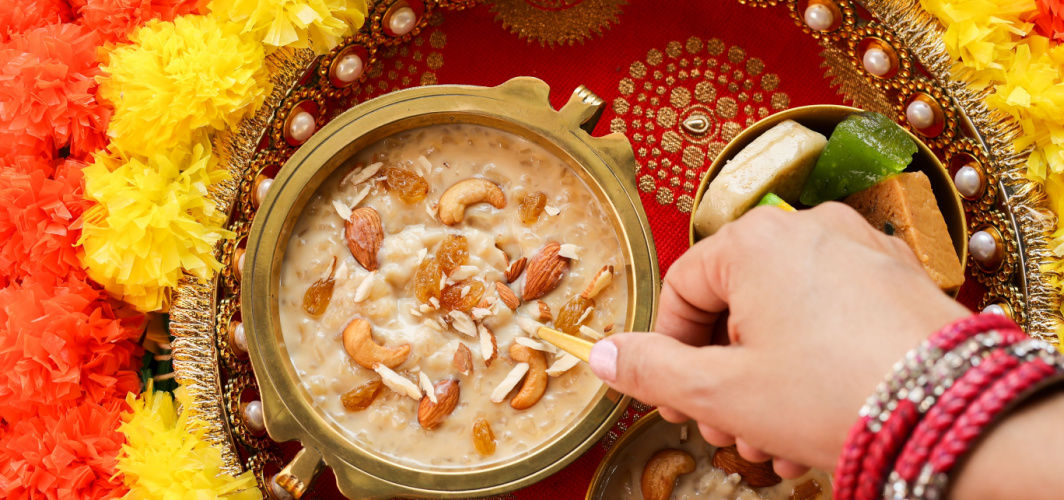Diabetes Management
Jowar: A Gluten-Free Grain for Diabetes-Friendly Eating
2 min read
By Apollo 24|7, Published on - 09 August 2024
Share this article
0
0 like
.jpg?tr=q-80)
When it comes to managing diabetes, what we eat plays an essential role in managing this condition. Certain foods can aid in controlling blood sugar levels, and one such food is Jowar, also known as Sorghum. But why is this grain recommended for individuals with diabetes? Let's find out.
Jowar and Its Impact on Blood Sugar Levels
Jowar's moderate Glycaemic Index (GI) makes it a beneficial grain for individuals with diabetes. Foods with a low to moderate GI cause a slower and more gradual increase in blood sugar levels, making them ideal for blood glucose management.
Nutritional Profile of Jowar
Jowar is rich in dietary fibre that slows down carbohydrate absorption, aiding blood sugar control. It's also packed with essential vitamins and minerals like magnesium and iron. Magnesium particularly helps in regulating blood glucose levels. Furthermore, Jowar's antioxidant properties help reduce inflammation and oxidative stress, which can complicate diabetes management.
Incorporating Jowar Into Your Diet
Jowar's versatility allows it to be incorporated into various dishes without compromising taste or nutrition. Let's look at some popular ways to include Jowar in your diet:
- Jowar Roti: A popular flatbread that pairs well with vegetable curries or lentils.
- Jowar Khichdi: Substitute rice with jowar for a nutritious one-pot meal.
- Jowar Upma: A savoury breakfast dish prepared by sautéing jowar semolina with vegetables.
- Jowar Porridge: A creamy porridge made by cooking jowar with low-fat milk or plant-based milk.
- Baking: Use jowar flour in baking recipes for a healthy twist on traditional baked goods.
- Jowar Dosa: Jowar dosa can be a great option for an evening snack, especially for a diabetic diet. Jowar (sorghum) is a whole grain high in fibre, which helps maintain blood sugar levels and provides a feeling of fullness.
Remember, while Jowar is an excellent choice for managing diabetes, portion control and personalised dietary advice from doctors are vital to ensure effective diabetes management. Also, consider enrolling in the Apollo Super 6 programme; it provides personalised support to help manage type 2 diabetes through lifestyle changes and dietary advice.
Diabetes Management
Consult Top Diabetologists
View AllLeave Comment
Recommended for you

Diabetes Management
5 Healthy Snacks for Diabetics During Navratri
Navratri has begun, and individuals with diabetes can easily relish the festive snacks with healthier adaptations. Baked gujiya with whole wheat and coconut-jaggery stuffing, healthy pakoras with vegetable swaps and olive oil, low-calorie thandai using sugar substitutes and nuts, Khandvi made from gram flour and yogurt, and kheer prepared with brown rice, jaggery, and plenty of dry fruits offer tasty options for diabetics. Enjoying the festival while managing blood glucose levels is possible with these diabetic-friendly delights.
.png?tr=q-80)
Diabetes Management
Effective Ways to Manage Diabetes and Stress
Effective diabetes and stress management involves regular exercise, mindfulness practices, controlled eating, leisure activities, peer interaction, open communication with loved ones, acknowledging emotions, and seeking professional help when needed. These strategies aid in ensuring your overall well-being while living with diabetes.
.jpg?tr=q-80)
Diabetes Management
Diabetes-related Brain Fog: Recognising the Symptoms
Living with diabetes can sometimes result in brain fog, making you feel confused or forgetful. Recognising the symptoms and understanding the causes can help you manage it effectively. Regular exercise, a balanced diet, and good sleep patterns are crucial to control brain fog. Join the Apollo Super 6 programme for personalised guidance and support in managing symptoms effectively.
Subscribe
Sign up for our free Health Library Daily Newsletter
Get doctor-approved health tips, news, and more.
Visual Stories

8 Fruits That are Incredibly Healthy for Diabetes
Tap to continue exploring
Recommended for you

Diabetes Management
5 Healthy Snacks for Diabetics During Navratri
Navratri has begun, and individuals with diabetes can easily relish the festive snacks with healthier adaptations. Baked gujiya with whole wheat and coconut-jaggery stuffing, healthy pakoras with vegetable swaps and olive oil, low-calorie thandai using sugar substitutes and nuts, Khandvi made from gram flour and yogurt, and kheer prepared with brown rice, jaggery, and plenty of dry fruits offer tasty options for diabetics. Enjoying the festival while managing blood glucose levels is possible with these diabetic-friendly delights.
.png?tr=q-80)
Diabetes Management
Effective Ways to Manage Diabetes and Stress
Effective diabetes and stress management involves regular exercise, mindfulness practices, controlled eating, leisure activities, peer interaction, open communication with loved ones, acknowledging emotions, and seeking professional help when needed. These strategies aid in ensuring your overall well-being while living with diabetes.
.jpg?tr=q-80)
Diabetes Management
Diabetes-related Brain Fog: Recognising the Symptoms
Living with diabetes can sometimes result in brain fog, making you feel confused or forgetful. Recognising the symptoms and understanding the causes can help you manage it effectively. Regular exercise, a balanced diet, and good sleep patterns are crucial to control brain fog. Join the Apollo Super 6 programme for personalised guidance and support in managing symptoms effectively.

